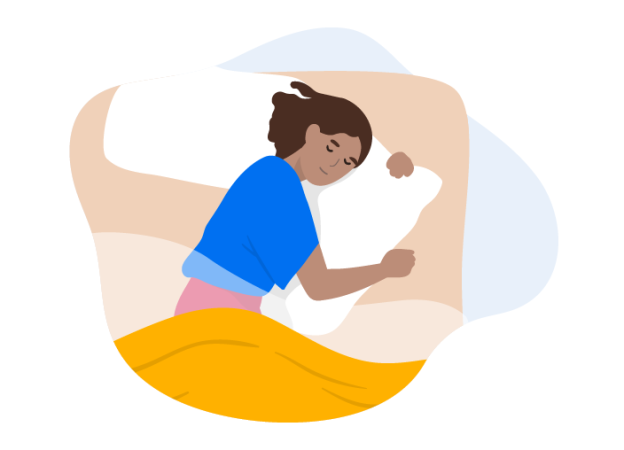The National Institute of Health (NIH) reports that sleep plays an important role in our physical and mental health. Studies show that a good night’s sleep improves learning and problem-solving skills. Sleep also helps you pay attention, make decisions, and be creative.
Studies also show that sleep deficiency changes activity in some parts of the brain. If you’re sleep deficient, you may have trouble making decisions, solving problems, controlling your emotions and behavior, and coping with change. Sleep deficiency has also been linked to depression, suicide, and risk-taking behavior.
The average adult requires 7-9 hours of sleep per night. Try to keep to the same sleep schedule daily, even on weekends and holidays.
Here are 7 Steps to help improve our sleep:
- Turn off Screens- Blue light from screens can inhibit our natural circadian rhythm. Power down devices about an hour before bedtime
- Read a book- Reading a book can distract you from replaying a busy day or worrying about the next. It can also allow you to relax without being exposed to blue light from a screen.
- Exercise earlier in the day
- Stretch- Just a 5–10-minute stretch session about an hour before bed can improve blood flow, relieve tension, and relax muscle aches to aid in sleep.
- Take a warm bath or shower one to two hours before bedtime
- Eat a sleep-inducing snack. – Almonds, walnuts, milk, and tart cherry juice all contain melatonin, a hormone that helps time your circadian rhythm and triggers sleepiness. Foods that contain magnesium can also help- bananas, pumpkin seeds, oats, and peanut butter for example. Magnesium is a mineral that reduces stress, relaxes muscles and helps your body create more melatonin on its own.
- Take deep breaths- Different yoga-based breathing techniques can help melt away stress and help you fall asleep.
Credits: Betterreport.com, Nicole Garner Meeker author; nih.gov

Leave a Reply
You must be logged in to post a comment.